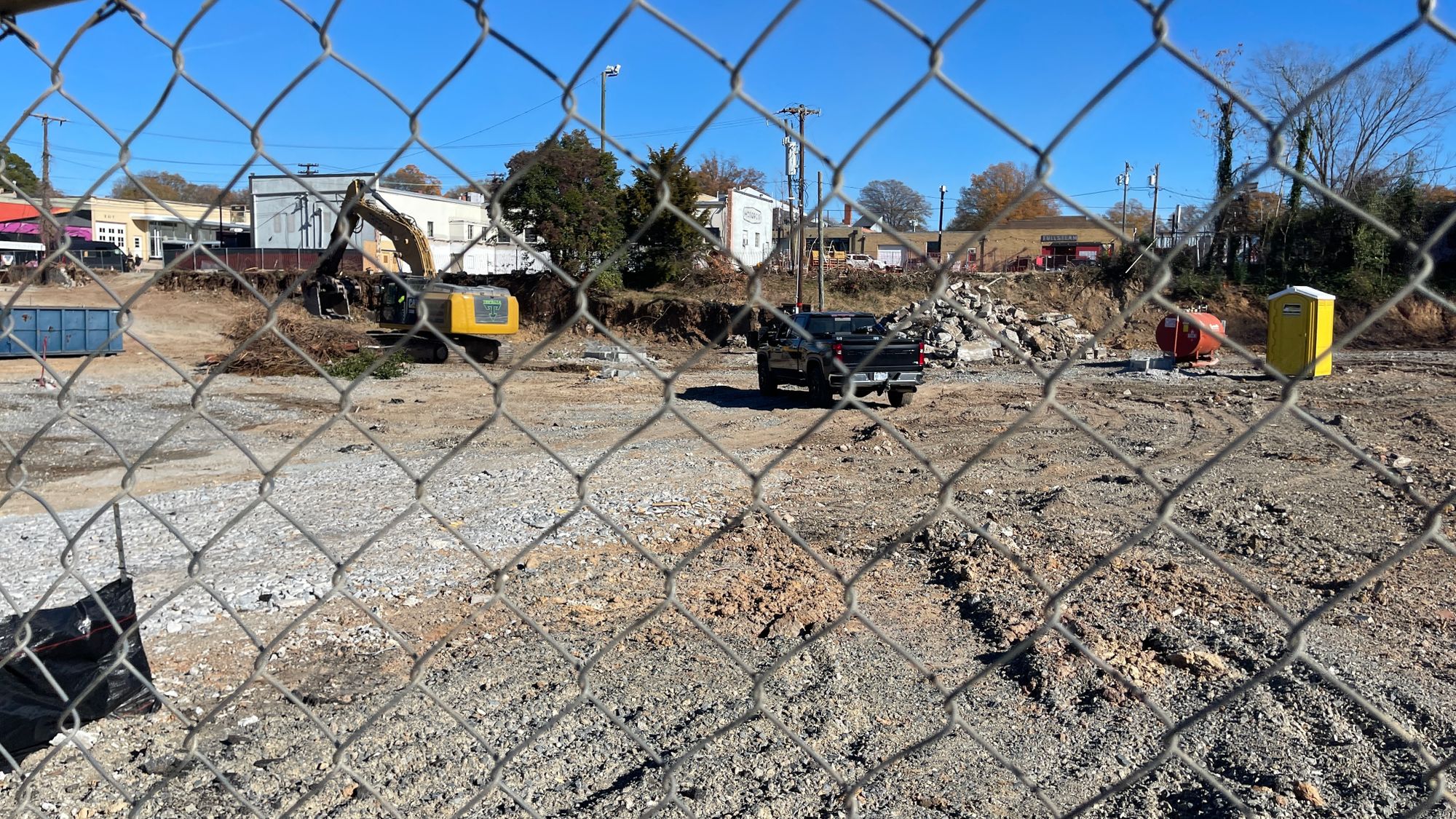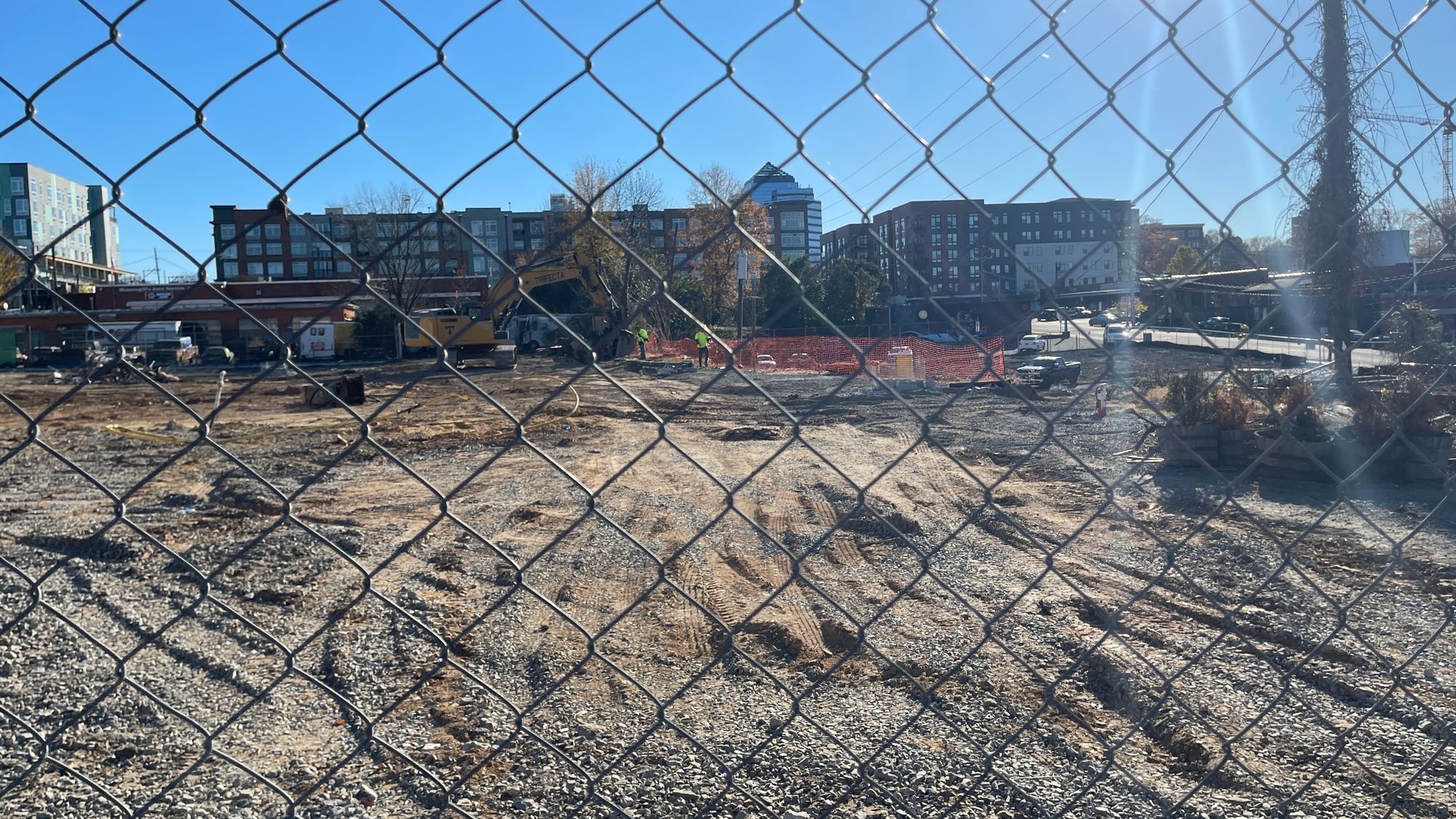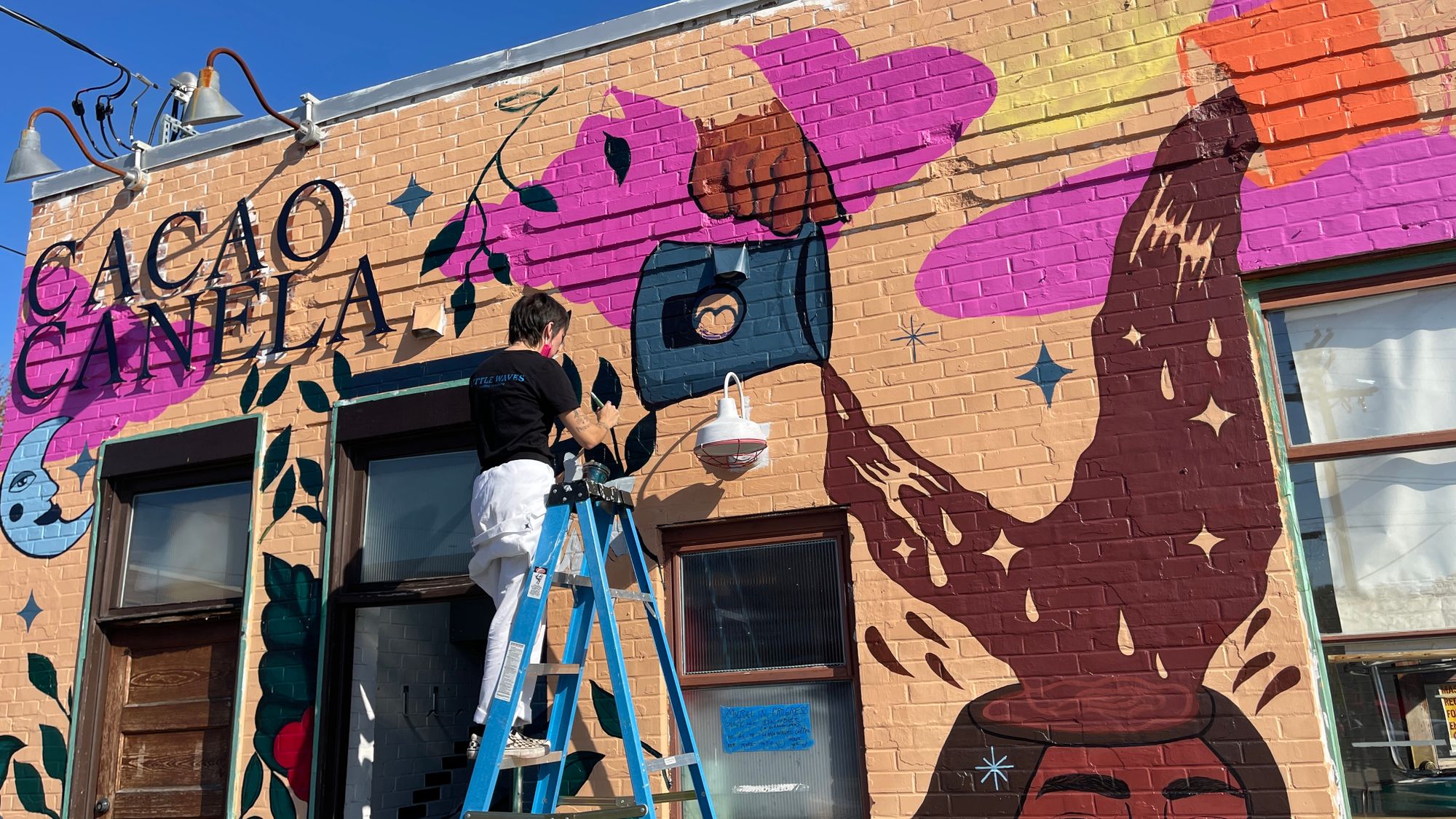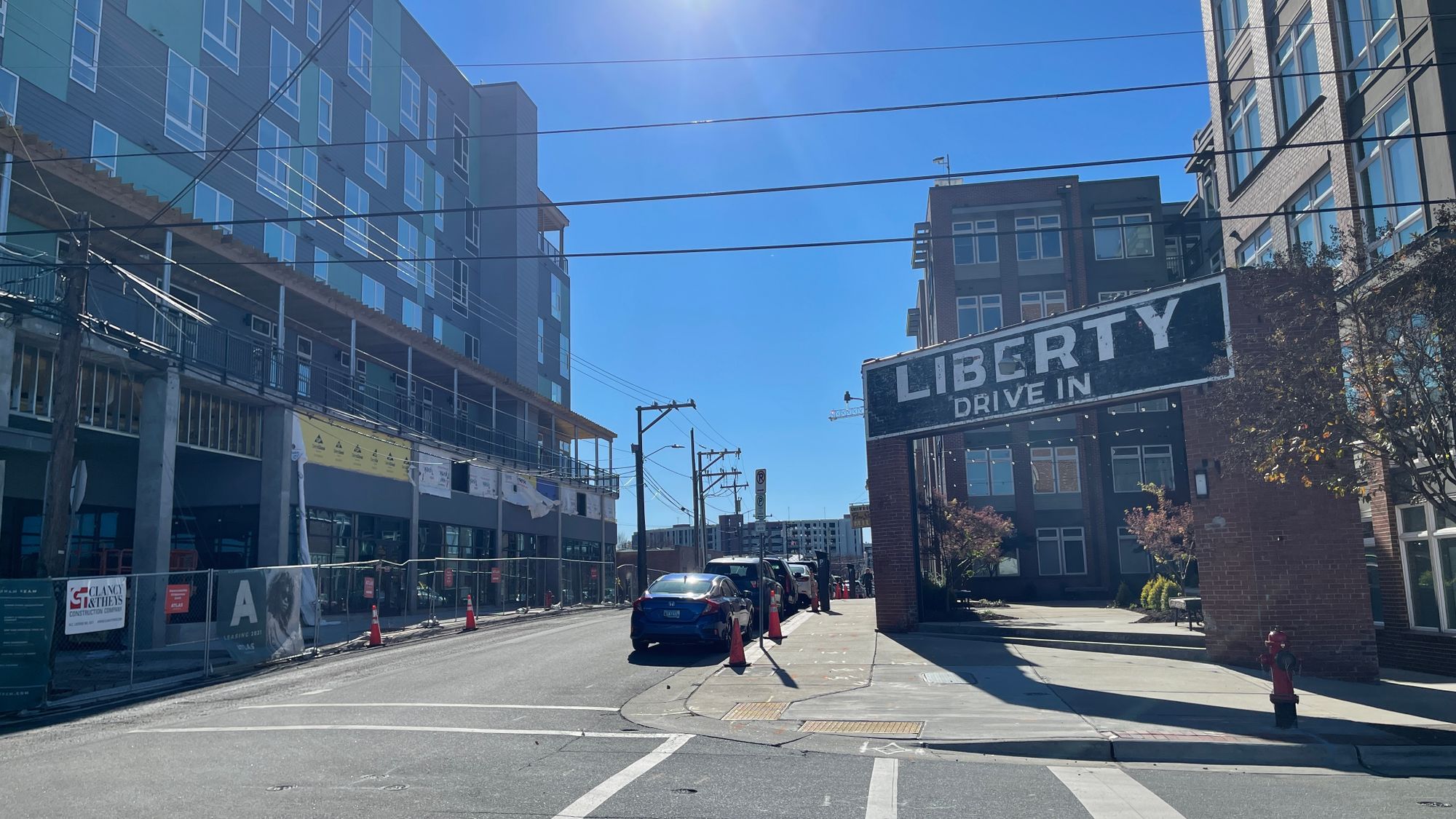When The Dust Settles In Durham
What does all the development in Durham mean for our future?

The day that demolition began on the space formerly (but forever lovingly) known as The Mothership, was the same day that the INDY released a powerful story about the controversial Pioneers Church, a coworking space/church/coffee shop/community market whose physical position on Geer St. and political position on the rights of LGBTQ individuals run in stark contrast to what we know about Durham and the recent history of this block in particular.

I decided to get away from my desk early that day and sneak over to Cocoa Cinnamon. It was one of those bizarre 70-degrees-in-winter days in that we appreciate in the moment but is a bad omen for our planet’s long-term viability. Victoria, one of my journalism heroes, was out walking with local celebrity Bessie, chatting up Michelle while she finished her mural on the side of Cocoa’s OND location. Leon, one of the co-owners, pulled up minutes later. He told me about a new drink they were about to announce. The whole afternoon felt familiar. Running into old friends, sitting at my favorite local coffee shop, pulling in inspiration from the activity around me.

I’ve been operating in downtown Durham for a decade, since I was first called upon to model for one of Runaway’s earliest photoshoots. In 2011, there was a skeptical optimism about the revitalization sweeping the city. Every year since, as more luxury condos and high-rise apartments are dropped on our heads like ACME anvils, the prospect of a Durham we envisioned ten years ago slowly slips away. The sweet sound of joyous conversation between friends or the low crackle of wheels crossing the skate park is drowned out by sledgehammers throttling, construction vehicles beeping, and site managers barking out orders. Every time I leave my house, there’s a new hole in the ground. I’m not saying all construction is bad. I, too, have developed since my more radical “get in Twitter beefs with Austin Lawrence Partners and have them confront you at your clothing shop” days. But it begs the question: what is it all for?

We need more housing to shelter all the new people moving here. What are they moving here for? The new Starbucks on Ninth Street? Jobs at Google? What about the people who are already here that need jobs and housing? What are we doing for them? What are we doing for all the small-business owners who were beaten down by the instability of the pandemic? Maintenance and restoration is just as important as building anew.
In this season of reflection and giving thanks, I want to be thankful for all that Durham has given me. I bet I’m not alone. The values in Durham that we inherited came from our elders, some of whom did not grow up in Durham. They moved here for work, or school, and made this city their own. They created a culture of camaraderie and justice, started businesses and served their community as government officials. The Durham we know today wasn’t manifested out of thin air. Earnest people cultivated it through tragedy and triumph.
There’s a great moment in Thor: Ragnarok where Odin, Thor’s father, reassures his son that the inevitable destruction of Asgard, their homeland, is not the end of their civilization. “Asgard is not a place. It’s a people.” (Spoiler: Most of those people are wiped out by an insane space tyrant months later. Ideally, this is where the analogy ends.).
To quote said space tyrant, Durham’s de(con)struction “is inevitable.” But we are not the infinite number of new buildings that have broken ground in the last month. We are the people who live in this city and the values we choose to uphold.

